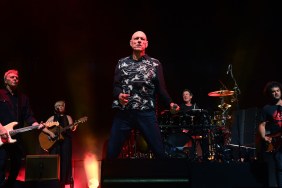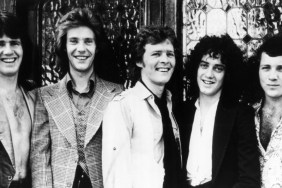BALIBO
Directed by Robert Connolly
Starring : Anthony LaPaglia, Oscar Isaac, Damon Gameau, Gyton Grantley, Mark Leonard Winter and Nathan Phillips.
Australian’s have a precarious relationship with our own history and this is no more evident than in its portrayal on our screens. Whilst only a young nation, we have forged for ourselves an deep collection of histories that would seem ripe for the cinematic picking and yet unlike other national film industries, it is a rare occurrence to see our past made into film. It is even rarer still to see it made into a good film. A large part of this issue is a cultural one, stemming from one of the fundamental deficiencies in Australian culture; we are almost pathologically unable to deal with the darker parts of our own history. Unlike in America where the faults and failures of the past are readily examined (Platoon, All The President’s Men), Australian filmmakers and audiences seem unable or unwilling to explore our own dark side.
Balibo faces up to this darkness and for that sake alone; it is a brave and worthy film indeed.
The incidents surrounding the 1975 invasion of East Timor by Indonesian forces, following directly on from the East Timorese gaining independence from its former Portuguese colonisers, are a dark blemish on Australian history. Wether through naivety, stupidity or a fear that East Timor may have become a communist stronghold right on our doorstep (a la Cuba), Australia stood by as Indonesia illegally invaded and occupied the country. To those born in the last twenty years, this seems quite strange, an about face, especially with the memory of the central and much celebrated role Australia played in peace keeping in the aftermath of the 1999 East Timorese independence referendum. To think that we played a part in the initial problem casts a whole new light on our recent history- not as a courageous defence of smaller nation, but as a poor attempt to right past wrongs.
The other unforgivable action of this period however concerned the fate of the Balibo Five, a group of five channel seven and channel nine journalists who were brutally murdered during the first days of the invasion and Roger East another Australian journalist who was murdered during his attempts to locate the five. The role that our own government played both providing intelligence as to the whereabouts and prescience of the journalists and also since the event, in the continuing conspiracy to prevent this truth from being widely known (even in light of the findings of a coronial inquest into the deaths) is the very definition of ‘unaustralian.’
As a film Balibo is a mirage, presenting the events through the world-weary eyes of Roger East (Anthony LaPaglia) and punctuated with carefully designed flashbacks to the Five as they trek across East Timor to Balibo, a small village on the border to Indonesian West Timor. This structure is both the films greatest strength and weakness. Director Robert Connelly and a cast of some of the strongest young acting talent in Australia manage to convey a deep complexity to the characters making them each endearing, and in East, LaPaglia draws out an awakening sense of shock, horror and finally anger that perfectly mirrors our own. In placing both stories side by side however, some of the deep resonance that is developed in each part is thrown as perspectives and time periods shift and the films seems to rush to fit in the strands of these parallel stories. There is enough here for two or three films which we can only hope will one day be made.
Overall this takes little away from Balibo, a film that was shot on location in East Timor (the first film to do so) and includes some emotional performances from local East Timorese actors. Igniting the film is the breathtaking performance of Cuban born, American raised Oscar Issacs, who brings fire and brimstone to his portrayal of then FRETILIN Communications Minister (now East Timorese president) Jose Ramos Horta. Serving as East’s guide to Balibo, Issacs as Horta is like a man possessed – passionate, articulate but also manipulative, aiming to use East’s journalistic reputation to help highlight the broader crimes being committed in East Timor, only to have East become obsessed instead with the fate of the Balibo Five. It is in their exchanges that much of the films political venom is unleashed, the ferocity of their words finally being exceeded by the violence and atrocities that are unfolding around them.
Balibo is not kind to Australia, or the then Whitlam Government- nor should it be- but hopefully this will not deter the audience from seeing what is a fine Australian film (although you get the feeling it will). We as a country need to open up to our past, both the light and dark, as it is our history and we need to acknowledge it, if only to learn from our failures, so as not to repeat them again. The fact that the Australian Federal Government has still not acted on the findings of the 2007 Coronial Inquest into these deaths- instead referring them to the Federal Police who have made no comment- should make us all angry. But unfortunately it will not, as not everyone is ready to see this film.
You will love this if: You are not afraid of the truth, no matter how grim.
You will hate this if: You still believe in an infallible Australia.
Balibo is screening in selected cinemas now.












